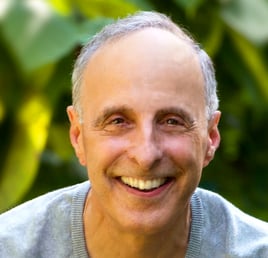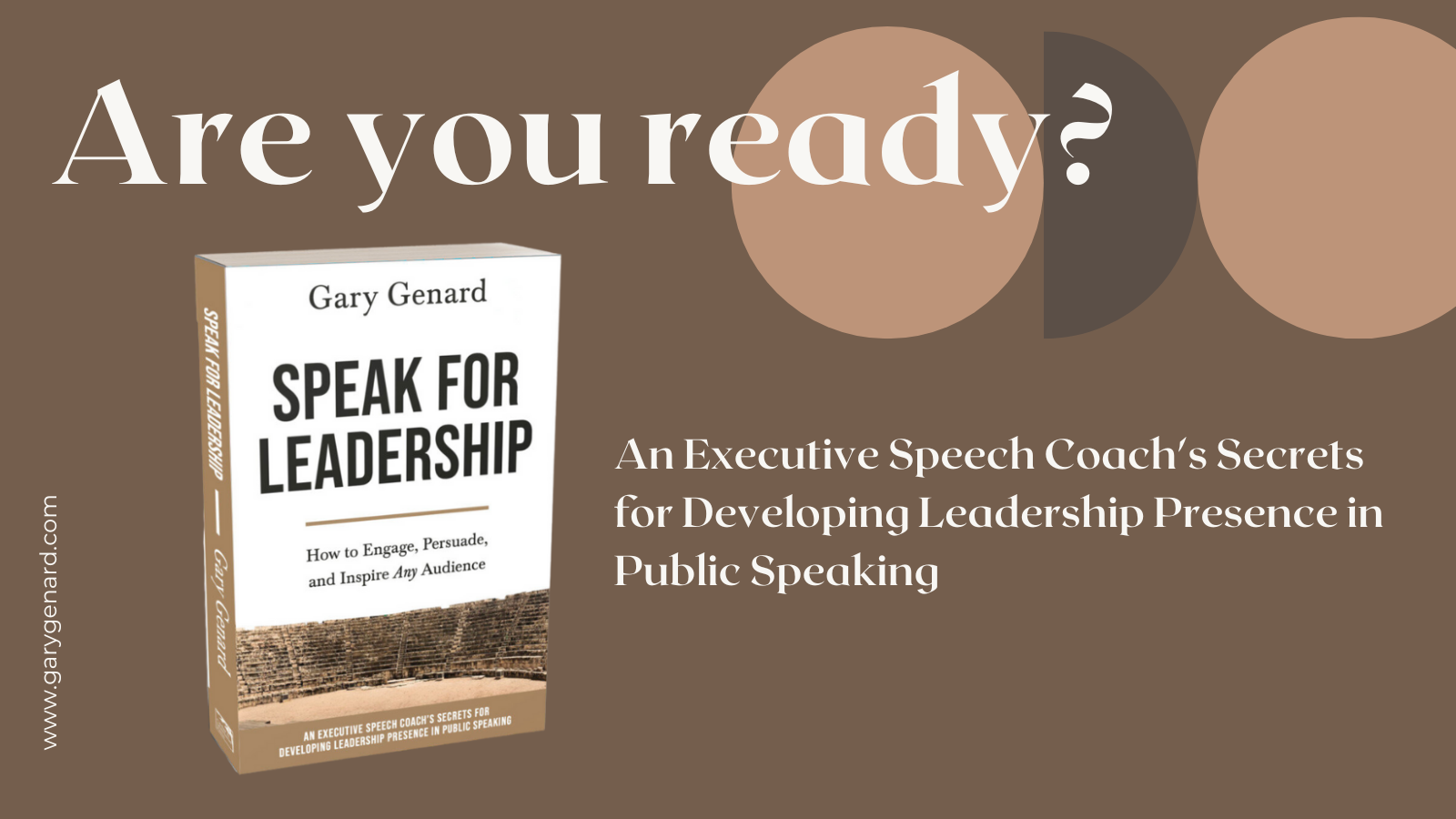Does your voice fully express your ideas and passions? Here's how to become a freer and more expressive speaker!
Welcome to the wonder of your voice! It's your most powerful public speaking performance tool for persuading, inspiring, and moving audiences. Why? Here's what Quintilian, a first-century A.D. Roman teacher of rhetoric had to say about it:
The voice will ring as passion strikes its chords. It is the intermediary between us and our hearers, and will produce precisely the same emotion in the judge that we have put into it. For it is the index of the mind, and is capable of expressing all its variety of feelings.
Want to grow your business? Speak to lead! Discover an executive speech coach's secrets for developing leadership presence with my book Speak for Leadership. Also on Amazon.
The Freedom From Training One's Instrument
If you get to be a memorable speaker, one reason will most likely be because of your voice. So why not learn how to develop a voice of authority so you sound like a leader? We talk about the figurative “voice” as the voice of a generation, the voice of leadership, etc. But your actual physical voice, more than any other performance technique, reflects who you are when you speak to others. Equally important: it’s your instrument par excellence for eliciting in others the same emotions you are feeling.
How is it done? By learning my 5 Key Tools of Vocal Dynamics. Download them here in my Free cheat sheet. Learn how to make your voice come vibrantly alive for listeners!
To speak with impact and influence, you must acquire the tools of full vocal expressiveness. I learned this lesson firsthand at the Webber Douglas Academy of Dramatic Art in London, where I completed my actor training. There, and at the other British acting academies, students work diligently on the technical aspects of vocal production. They do so to achieve the freedom and power that comes from training one’s instrument and knowing how to use it. The human voice differs from other instruments in that you can train it, not merely train yourself to play it.
What Your Speaking Voice Reveals
Often, you will find that when your voice is not performing the way you want it to, the fault will be related in some way to your own intentions being out of balance. For instance, if your voice sounds tight and tense as you’re advocating a point of view, that is probably because you’re straining too hard for the end result of persuasion, rather than taking the time to build your case logically. If you believe you have solid evidence to support your argument, why would you become strident?
Want to influence others and be a memorable speaker? Develop your voice! You'll learn how in the Public Speaking Handbook, How to Give a Speech. Also on Amazon.
British theatrical voice coach Cicely Berry gave some marvelous examples of the connection between mental and emotional states and how the voice reveals them. Consider the following:
-
Diction not clear = Not being precise enough in thought or not carrying the thought all the way through to the words.
-
Trailing away at the end of phrases = Not thinking through to the end of a thought.
-
Stiff jaw and immovable lips = Reluctance to communicate.1
Do you see how the way you express yourself vocally is closely linked to your thinking and motives? Your voice is thus an excellent barometer of how simply and honestly you are getting across to people. Part of your success then depends upon your ability to express yourself physically. That means through knowing the 12 body language rules for being an effective speaker, but also being command of your voice (since it too is produced physically). It all has to do with drawing the audience in to truly listen.
What about the strategic side of things, and building your argument? To learn about that, download my Free guide, Six Rules of Effective Public Speaking. Put it in your toolbox!
Breathing and Freeing the Voice
To get your voice to reflect your thoughts and feelings—and to help you physically express what you mean to say—you have to free it. Vocal production starts with breathing, as air pressure and exhaled breath excite the vocal folds, which then produce sound. So, to release your voice fully, you first must free your breath.
Today, many people use a “head voice,” which produces a thin, intellectual sound without any chest resonance to add depth and character. Scottish voice coach Kristin Linklater characterizes that situation as splitting yourself in two, with one part of you speaking, and the other part observing from above and commenting on your own performance.2 Such speakers don’t trust their vocal production enough to let it freely express what they’re thinking and feeling!
Your breath is fundamental to the essence of who you are, for how you breathe and the way you live your life can't be separated. Therefore, when your breath is released without obstruction, you are released. (Breathing can also help you discover how to overcome your fear of public speaking.) When you breathe freely, your listeners receive much more than the simple sounds coming from your mouth. They hear the “unobstructed you”—the free flow of your thoughts and emotions. What could be more intimate than to share the breath that flows from inside you and results in your authentic voice?
You can see how your breath and voice are responsible for much of your success as a speaker. And since the voice uses the body to express itself, you must master physical performance to gain control over your vocal instrument. There’s no way around it: your voice is produced physically. How incredible that that fact is often overlooked!3
1 Cicely Berry, Voice and the Actor (New York: Collier, 1973), 19.
2 Kristin Linklater, Freeing the Natural Voice (New York: Drama Book Publishers, 1976), 28.
3 Patsy Rodenburg, The Actor Speaks (New York: St. Martin's, 2000), 5.
This article is excerpted from my book, Speak for Leadership: An Executive Speech Coach's Secrets for Leadership Presence. Get a signed copy here. Or at Amazon.
You should follow me on Twitter here.

Gary Genard is an actor, author, and expert in public speaking and overcoming speaking fear. His company, The Genard Method offers live 1:1 Zoom executive coaching and corporate group training worldwide. He was named for nine consecutive years as One of the World’s Top 30 Communication Professionals, and also named as One of America's Top 5 Speech Coaches. He is the author of the Amazon Best-Seller How to Give a Speech. His second book, Fearless Speaking, was named in 2019 as "One of the 100 Best Confidence Books of All Time." His handbook for presenting in videoconferences, Speaking Virtually offers strategies and tools for developing virtual presence in online meetings. His latest book is Speak for Leadership: An Executive Speech Coach's Secrets for Developing Leadership Presence. Contact Gary here.






